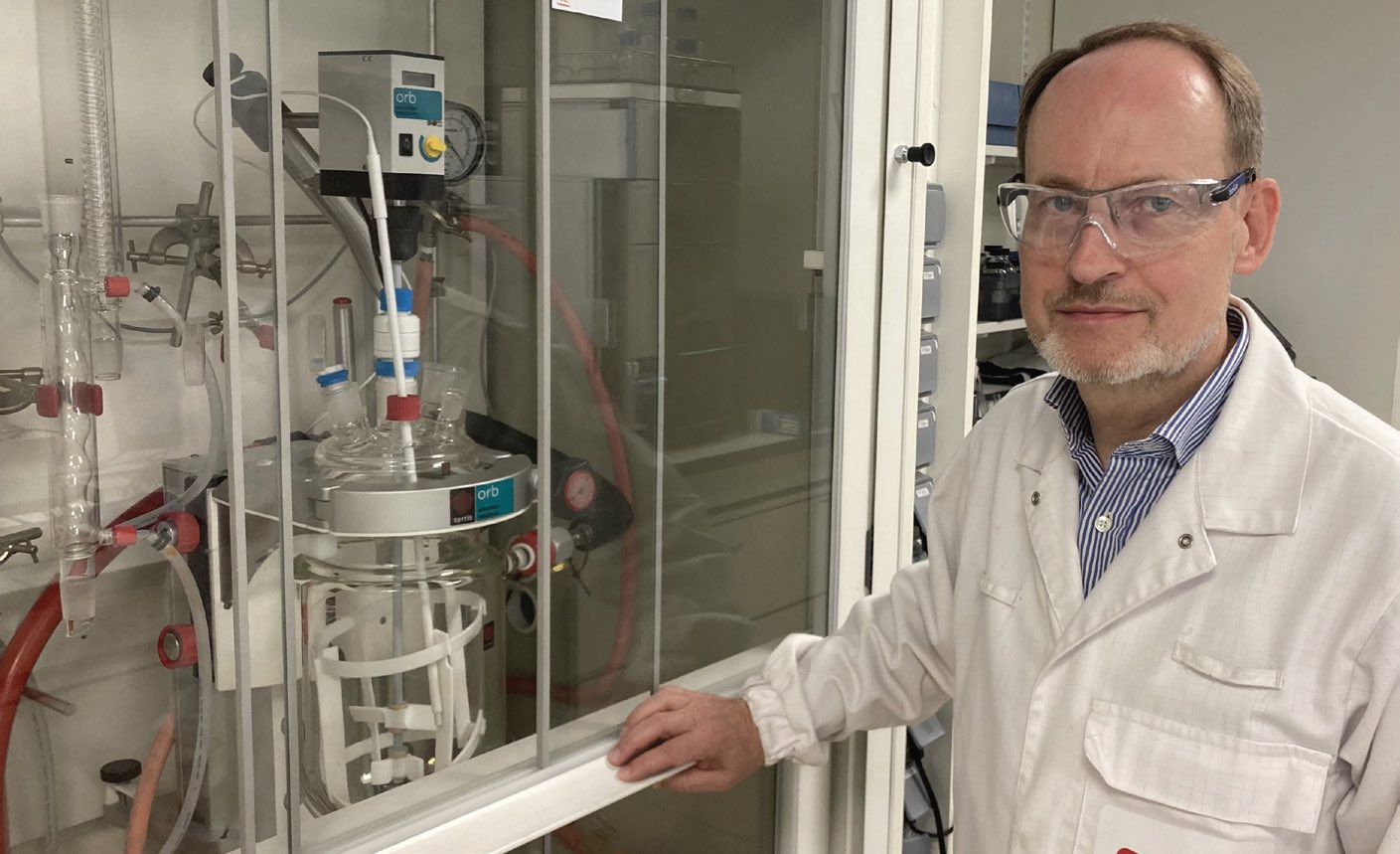20 Minutes With Laurent Chuche
By Rachel Fowler, Publisher/Editor-in-Chief | TLT 20 Minutes December 2023
This senior technical advisor for TotalEnergies discusses base oils and sustainability.
Laurent Chuche - The Quick File
Laurent Chuche graduated with a degree in chemical engineering from the Ecole Nationale Supérieure des Industries Chimiques de Nancy in France in 1991 and joined the Total Group 25 years ago, working for the refining and marketing division at the group’s headquarters in Paris La Défense then in Brussels, following the merger with Petrofina in 1999. He was successively in charge of strategic studies to adapt the group’s European refineries to the new motor fuels specifications planned for 2000 and 2005, then moved to the Antwerp refinery to be successively appointed as head of production planning, then as logistic optimization project manager.
Back to Paris, Chuche conducted organizations and methods audits of Total European refineries, then eventually joined the Lubricant Division for where he is still assigned.
Prior to joining TotalEnergies, Chuche got five years of industrial experience working for Mobil at the Port-Jérôme-Gravenchon refinery firstly as a process engineer, then developing computerized process optimization solutions of the refinery’s base oil production units. This is at this time when his base oil experience effectively got started.
He is and has been acting as a representative of TotalEnergies Lubrifiants in various interprofessional workgroups dealing with lubricants regulatory evolutions and their enforcements modalities, both at European (the Technical Association of the European Lubricants Industry [ATIEL], FuelsEurope and Concawe) and French (Cyclevia and the French Association of Petroleum Industry [UFIP]) levels.

Laurent Chuche
TLT: How long have you worked in a lubrication-related field, and how did you decide to pursue a career in the lubricants industry?
Chuche: I started to work for the lubricant division of TotalEnergies 15 years ago as base oil technical manager, liaising with the base oil manufacturing operations of the company and supporting the purchase team for external supplies. Following the decline of TotalEnergies’ internal production and the rise of external raw materials needs, I decided to develop my knowledge of the lubricants’ technical requirements to become a base oils specialist and to act as technical advisor in that field.
TLT: Could you please share what have been the major changes in the base oil scope over the last 20 years?
Chuche: The main changes that impacted the base oil market that I could witness in the field of mineral base oils were the transitioning from solvent-refined base oils to hydro-processed products on the one hand, and the emergence of premium quality regenerated oils on the other hand. In the synthetic base stocks space, the availability of optimized polyalphaolefins structures enabled by metallocene catalysts have pushed back the performance limits of pure hydrocarbon lubricating oils.
TLT: What are, for you, the major challenges in terms of base oils in the next 10 years?
Chuche: The decarbonization of the industry that is required by the climate change challenge will affect the lubricants market both qualitatively through evolving performance standards, including the life cycle of those products, and quantitatively as a result from shifts of the lubricants’ demand caused by vehicles electrification. The base oils selection criteria of most lubricants companies will be significantly impacted and should ultimately result in dedicated investments and new partnerships between stakeholders across the lubricants value chain.
TLT: What has been your most rewarding accomplishment throughout your career in the lubricants industry?
Chuche: In the past 10 years I have been very proud and fortunate to take an active part in the development and implementation of various circular economy projects on a global scale, spanning from industrial space down to product development and to directly contribute showcasing the various benefits of rerefined base oils (RRBOs) to customers.
TLT: How can choosing the right base oils help customers achieve their sustainability goals?
Chuche: Customers can achieve sustainability goals by taking steps in several ways. Firstly, it is key to carefully select the most appropriate lubricant for the targeted application because sustainability of machineries is the essence of lubricants. But they also must think beyond lubrication performance and understand how the lubricant has been engineered. Base oils are diverse and so are their sustainability features. As an example, choosing the right base oil at lubricant design step may help in decreasing the carbon footprint of the formulated product by more than 30%.
 TLT: How do you see the rerefined base oils qualities and market evolving in the coming decade?
TLT: How do you see the rerefined base oils qualities and market evolving in the coming decade?
Chuche: RRBOs will become a key category of raw materials because regulatory environments are becoming increasingly stringent in most developed countries where environment and climate issues are effectively tackled. Firstly, used oil collection efficiency and waste hierarchy implementation are prerequisites to the development of an effective RRBO industry. In the end, I do believe that incorporating RRBOs in lubricants will either become mandatory or even provide a competitive advantage. This should translate into a growing manufacturing capacity of premium quality RRBO, be it by building grassroot plants or upgrading existing Group I RRBO or recycled distillates.
I expect the RRBO market to grow in the next decade, under the joint effects of increased used oil collection and recycling at the expense of using used oil as alternate fuel. The pace of growth will directly be influenced by national waste oil regulations.
TLT: What is the No. 1 piece of advice you would give to a person who might be interested in starting a career in the lubricants industry?
Chuche: My piece of advice is to be curious! The lubricants industry is complex because of the diversity of applications, specifications and norms, raw materials, stakeholders, etc. Mastering all those dimensions would certainly require more than a whole career’s time! I do believe that an effective contribution to this industry requires a substantial level of understanding of most of its inner workings, whatever one’s role in the lubricants value chain is.
You can reach Laurent Chuche at laurent.chuche@totalenergies.com.